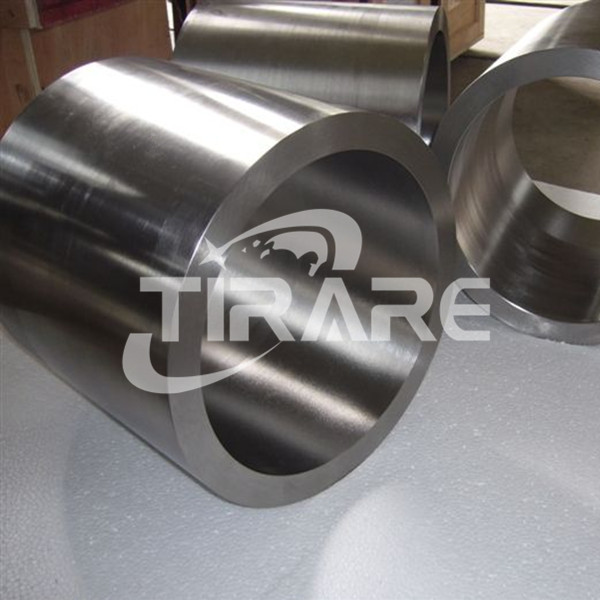Description
Titanium and titanium alloy forging
Grade: Gr1, Gr2, Gr3, Gr4, Gr5, Gr7, Gr9, Gr11, Gr12
Standard: ASTM B381, ASTM B348, ASTM F67, ASTM F136, AMS 4911
Processing method:
Forging (large size)
Cold forming
Aging treatment
Annealing
Drilling (small size), wire-cutting and maching
Inspection: Ultrasonic undestructive inspection
Applications of titanium forgins: aeronautic, medical, semi-conductor, chemical engineering & Petrochemical technology, electrolysis, electroplating
|
Titanium foring types |
Dimensions |
||
|
Outer Diameter |
Inner Diameter |
Height |
|
|
Disc |
150~300 |
/ |
20~140 |
|
300~500 |
/ |
25~150 |
|
|
500~600 |
/ |
30~110 |
|
|
Ring |
200~400 |
100~300 |
20~150 |
|
400~700 |
150~500 |
30~250 |
|
|
700~900 |
300~700 |
35~300 |
|
|
900~1300 |
400~900 |
50~400 |
|
|
Grade |
Status |
Tensile Strength |
Yield Strength |
Elongation |
Area of Reducation |
||
|
Ksi |
Mpa |
Ksi |
Mpa |
% |
|||
|
≥ |
|||||||
|
GR1 |
Annealed |
35 |
240 |
25 |
170 |
24 |
30 |
|
GR2 |
50 |
345 |
40 |
275 |
20 |
30 |
|
|
GR3 |
65 |
450 |
55 |
380 |
18 |
30 |
|
|
GR4 |
80 |
550 |
70 |
483 |
15 |
25 |
|
|
GR5 |
130 |
895 |
120 |
828 |
10 |
25 |
|
|
TI-6AL-4VELI |
125 |
860 |
115 |
795 |
10 |
25 |
|
|
GR6 |
120 |
828 |
115 |
483 |
15 |
25 |
|
|
GR7 |
50 |
345 |
40 |
275 |
20 |
30 |
|
|
GR9 |
90 |
620 |
70 |
483 |
15 |
25 |
|
|
GR11 |
35 |
240 |
25 |
170 |
24 |
30 |
|
|
GR12 |
70 |
483 |
50 |
345 |
18 |
25 |
|
Advantages:
1. High Strength
Titanium strength/density ratio is better than other metals, titanium components of high strength, good rigidity, less weight are applied for aircrafts engines, frames, skins, fasteners and landing gears.
2. Anti-Corrosion
Compared with stainless steel, titanium alloy performs better amti- corrosion in moisture laden air, seawater, titanium greatly resists spot corrosion, acid corrosion and stress corrosion and other corrosions caused by alkali, chloride, chlorinated organic sunstances, sulphuric acid, nitric acid.
3. High-Temperature Resistance
Titanium application temperature's higher than aluminum alloys. Titanium can work in 450-500℃ for long time and bear high strength when working in 150-500℃. The highest working temperature of titanium can beas high as 500℃.
4. Low Temperature Resistance
The mechanical properties of titanium is good when working in low or super low temperature conditions. Titanium alloys with low-temperature resisitance and extra low interstitial still possess good ductility, therefore, titanium alloy is a sort of good low temperature structural material.
5. Eco-Friendly Metal
Thermal conductivity of titanium is lower than carbon steel or copper, but titanium has very good corrosion resistance, therefore, titanium thickness can be greatly reduced, also the heat exchange mode is drop-wise condensation between titanium and steam. This kind of mode reduces heat transfer resistance, no fouling on titanium surface, which makes titanium thermal conductivity better.
6. Good Thermal Conductivity
Titanium is non-magnetic metal, it can't be magnetized in large magnetic field, it is toxic-free and compatibility with blood, there, titanium is applied in medical field.


